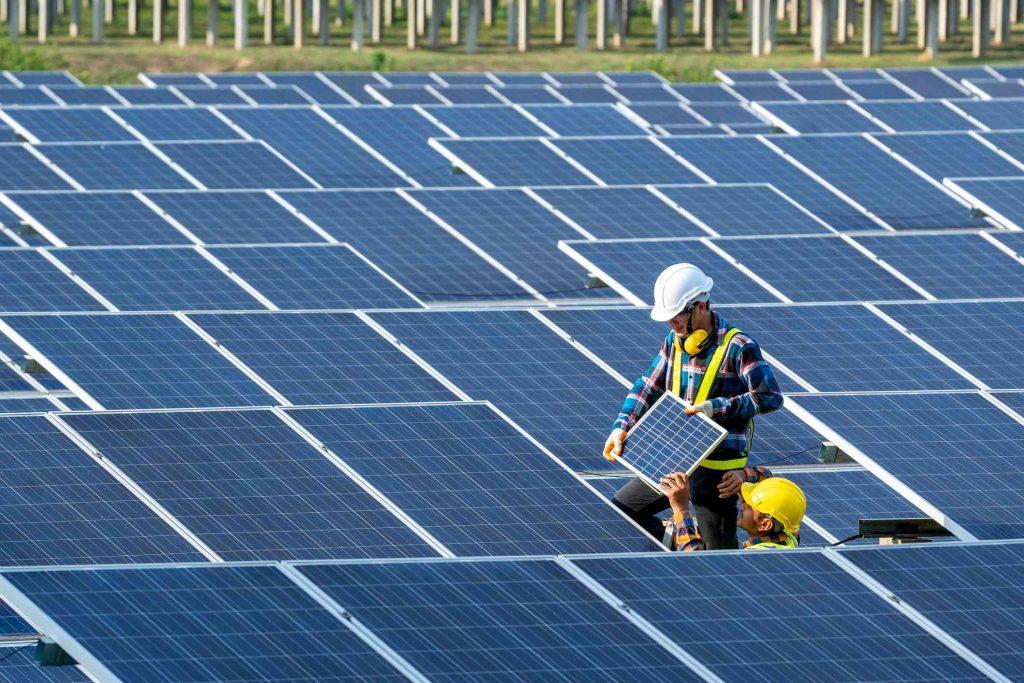The best way to obtain a solar permit for a commercial solar project is to follow all the necessary guidelines and procedures outlined by your local building department. This typically involves the following steps:
-
Research local building codes and regulations for Commercial Solar Projects:
Each state and municipality has its own set of building codes and regulations that must be followed when installing a solar project. It is important to research these codes and regulations to ensure that your project meets all necessary requirements. -
Determine commercial solar project location: The location of your solar project is an important factor in the permitting process. You will need to consider factors such as the location of the electrical grid, the availability of sunlight, and the presence of any obstacles that may impact the installation of your solar panels.
-
Gather the necessary documentation for the commercial solar project
: To submit a permit application, you will need to provide detailed plans and specifications for your solar project, as well as any necessary documentation, such as site plans, electrical diagrams, and structural calculations.
-
Submit a complete and accurate permit application: When submitting your permit application, it is important to ensure that it is complete and accurate. This will help to expedite the review and approval process and minimize the chances of any delays or issues.
-
Follow up with the building department: Once you have submitted your permit application, it is a good idea to follow up with the building department to ensure that it is being reviewed in a timely manner. If there are any issues or concerns with your application, it is important to address them as quickly as possible to avoid any delays in the permitting process.
Overall, the key to obtaining a solar permit for a commercial project is to be thorough, organized, and proactive in your approach. By following all necessary guidelines and working closely with your local building department, you can ensure that your solar project is completed safely and efficiently.

Overall, the key to obtaining a solar permit for a commercial project is to be thorough, organized, and proactive in your approach. By following all necessary guidelines and working closely with your local building department, you can ensure that your solar project is completed safely and efficiently. Obtaining a permit for a commercial solar project in the United States typically involves several steps. Here is a general outline of the process:
- Research local building codes and regulations: Each state and municipality has its own set of building codes and regulations that must be followed when installing a solar project. It is important to research these codes and regulations to ensure that your project meets all necessary requirements
- Determine project location: The location of your solar project is an important factor in the permitting process. You will need to consider factors such as the location of the electrical grid, the availability of sunlight, and the presence of any obstacles that may impact the installation of your solar panels.
- Submit a permit application: Once you have determined the location of your project and have gathered all necessary information, you will need to submit a permit application to your local building department. This application should include detailed plans and specifications for your solar project, as well as any necessary documentation, such as site plans, electrical diagrams, and structural calculations.
- Review and approval process: After you have submitted your permit application, it will be reviewed by the building department to ensure that it meets all necessary codes and regulations. If the application is approved, you will be issued a permit, which allows you to proceed with the installation of your solar project. If the application is denied, you may need to make changes to your plans and resubmit the application for review.
It is important to note that the specific requirements for obtaining a solar permit may vary depending on the location of your project and the size and scope of the installation. It is always best to consult with a qualified solar professional and your local building department to ensure that you are following all necessary guidelines and procedures.
